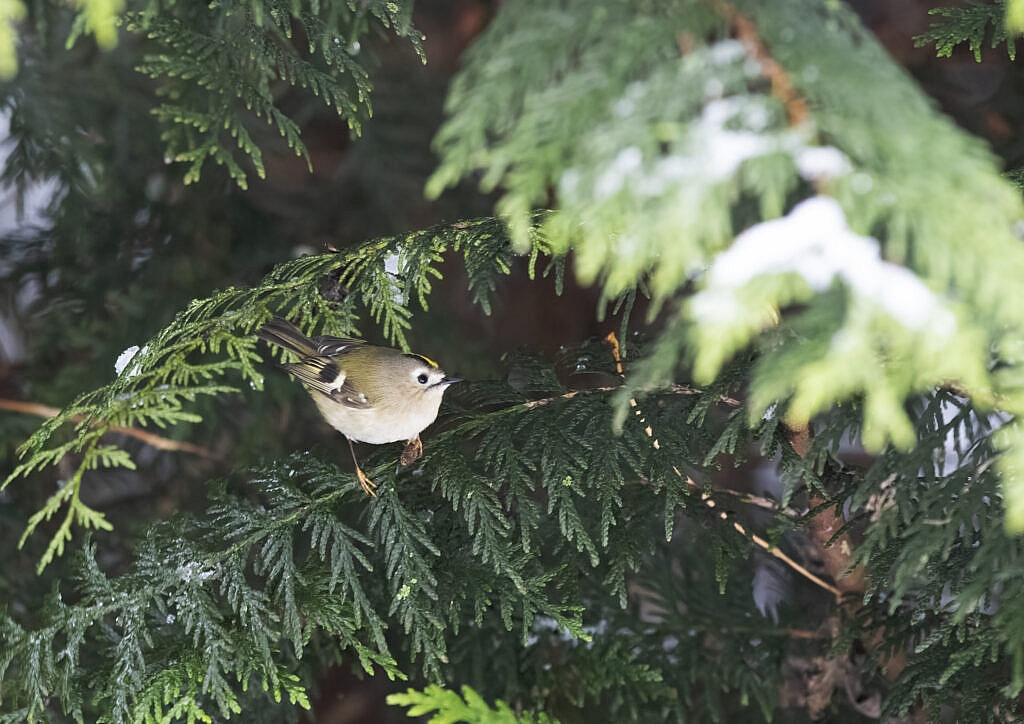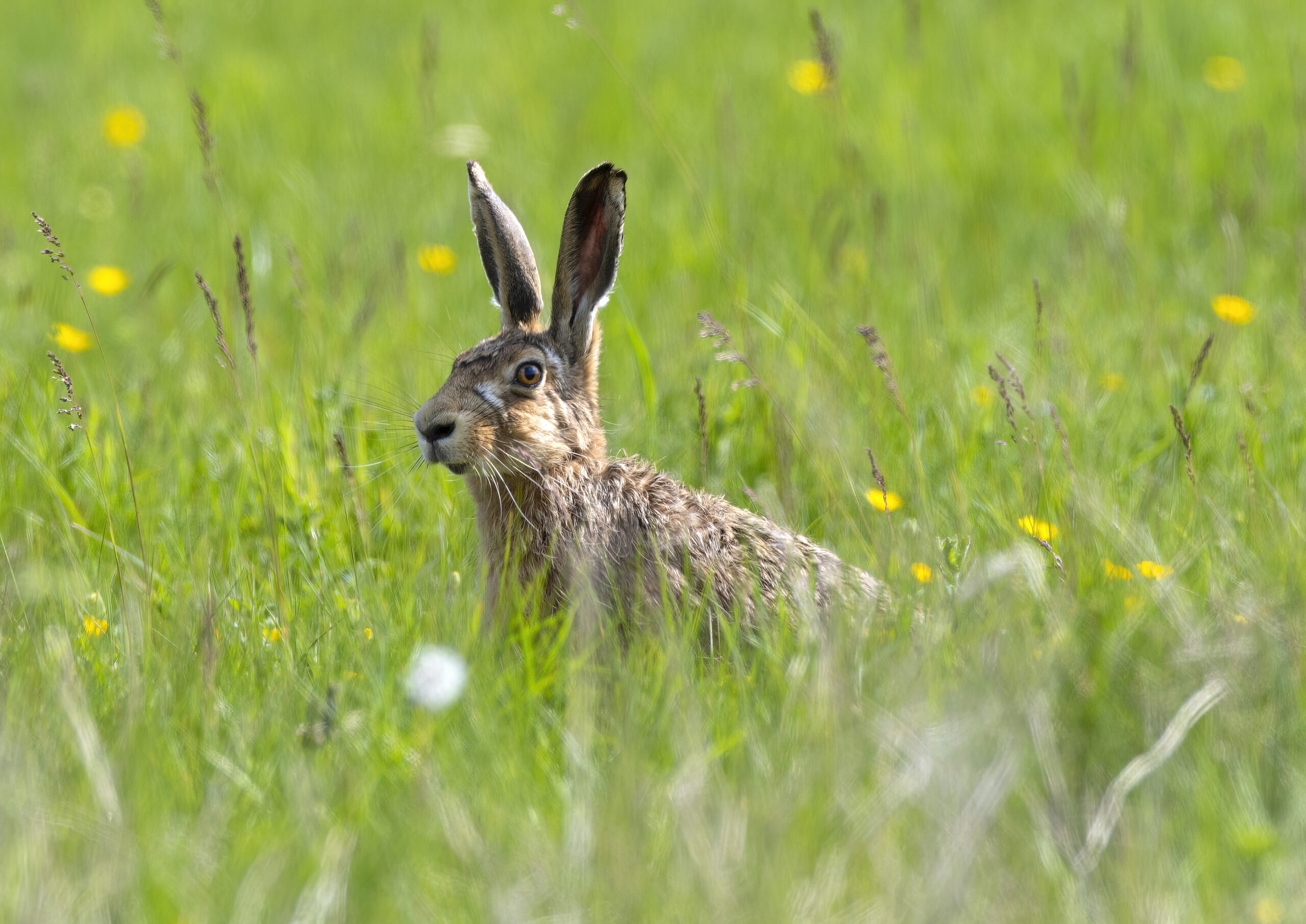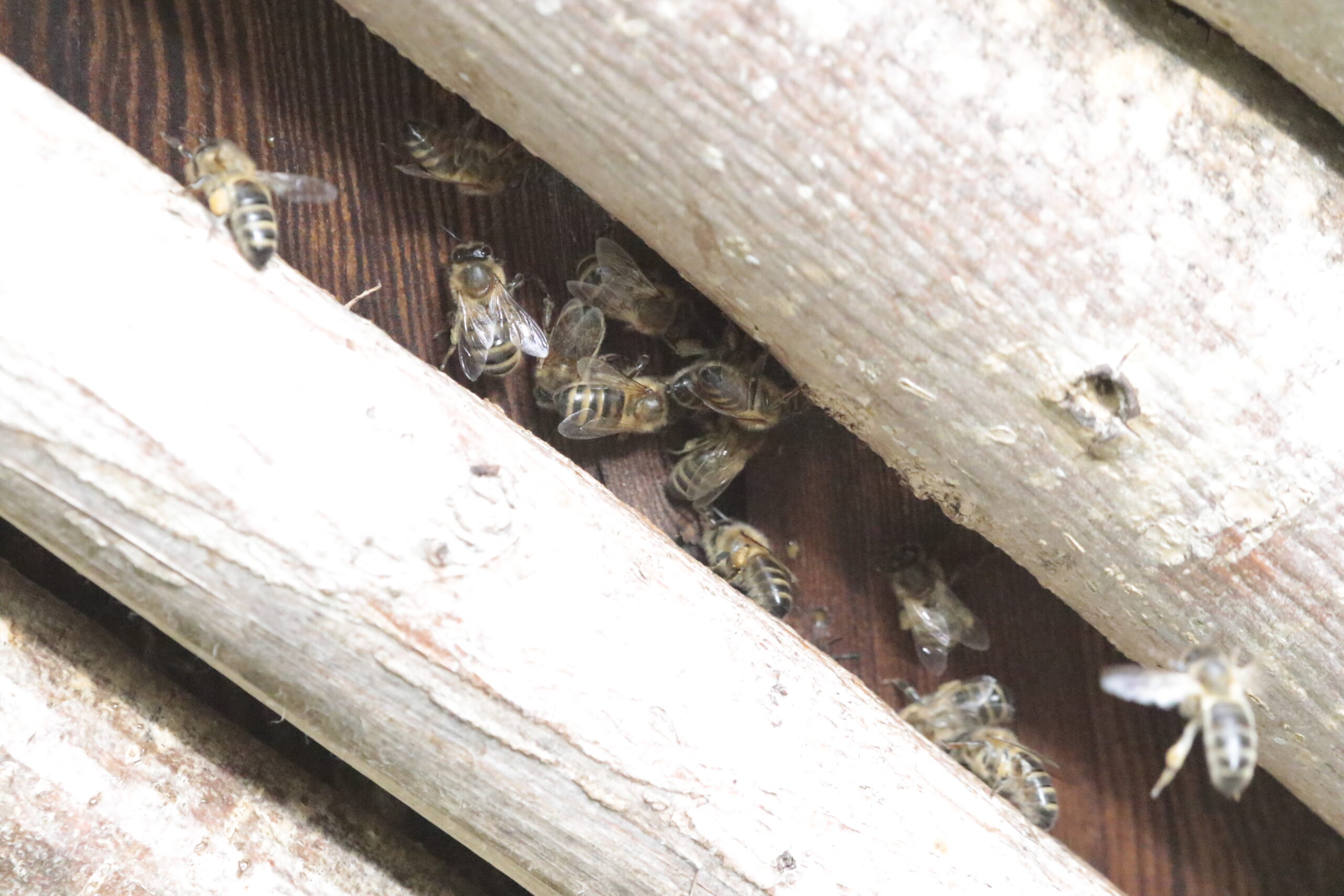Snow was forecast for today, so when a hungry cat woke me at 4 AM I did what any sensible person would do: I pushed him off and tried to go back to sleep.
When he tried again at 5 AM, and resorted to his usual ploy of jumping up on to the bedside table and progressively knocking things one by one to the floor to get some attention, I did what any sensible person would do, gave up, went downstairs and fed him and his larger and less annoying sibling. Since I was up anyway, I looked out of the window for the promised snow, and saw nothing.
I woke again at 6 AM, this time at my own urging, since this is the time of morning I get up to go to work. I have done so for so many years now that my body automatically wakes me at this time whether I want it to or not. I looked out of the window for the promised snow and saw nothing. By 7 AM, when I pulled the curtains back in the lounge ready to start my day, I looked out of the window for the promised snow and saw 3 inches had suddenly arrived. This wasn’t the timid snow that we normally get in this country, snowflakes like grains of rice that really couldn’t be bothered to get out of bed themselves. No, this was big fat fluffy snow, the size of three cornflakes welded together drifting down from a grey sky and piling up in front of my very eyes. From the upstairs windows of my house it looked white, like swan down floating downwards. From downstairs in my kitchen, it looked grey, and I wondered how something grey could be visible against a grey sky, but somehow it was.
Normally in weather like this, I’d head out into the countryside in the hope of seeing a fox or deer standing out against a field of snow. But this year, with lockdown in full swing and the health services stretched to breaking point, I felt that would be a responsible. So instead I went for a slow and measured walk around my local lake and the small piece of woodland that sits atop it. The sky was grey, and the air cold. It’s an odd thing: cold air has no smell, or rather it has its own smell. Cold air smells only of cold air, you can’t detect the other scents that lie beneath it. I stepped out into Narnia, into filigree tracery of black twigs each outlined above with a white line, as if a mad painter had been out and highlighted the tops of every one. Cold air has its own smell, and snow has its own sound. The scrunch and squeak when you walk on it is like nothing else, except perhaps rubbing blocks of polystyrene together.
For some time as I walked, I saw no wildlife. The waters of the lake had a grey stillness to them, covered as they were in most places by a thin floating layer of slush. The swan family paddled through it effortlessly, with the adolescent cygnets, now shedding the last of their brown feathers for the pure white coat of an adult, looking around themselves in wonder at how the whole world had suddenly turn to swan. It wasn’t until I reach the woodland that I started to see and hear things move. A family of long – tailed tits chattered their way through the trees, searching for insects, creating little flurries of snowfall as they bounced onto a twig and off again. One even managed to score a direct hit on me, a small softness of cold hitting exactly on the back of my neck and sliding down beneath my clothes. But I didn’t begrudge the long-tail that caused it: there is something cheerful about the relentless busyness of longtails, especially when they are all puffed up against the cold, looking for all the world as though someone has stuffed a small pencil into the pom-pom lost from somebody’s fluffy hat. I find them irresistibly cute.
Further into the woodland, I heard a high-pitched sound, fluttering on the very edge of my hearing, and caught sight of a small olive shape fluttering. Three pine trees, their branches still green, were bent and bowed under blankets of white snow. And beneath them our smallest bird, the Goldcrest, searching them on hovering wings. Weighing no more than half a Jaffa cake, the Goldcrest is our answer to the Hummingbird, and I watched as it hovered on blurring wings as it poked its slender beak into nooks and crannies looking for spiders. They are short lived birds, with an average life expectancy of about eight months, so this bird had never seen snow before, and its parents hadn’t lived long enough to to teach it what was snow was like. As so much of our wildlife does, this small bird was operating on instinct.
As long-lived as humans are, we often forget how ephemeral the lives of much of our wildlife can be. Consider for a moment the mayfly, which has lived all of its life underwater until the day when it emerges, changes its body shape entirely, grows wings, and and then has to learn how to fly and mate and lay eggs on the wing without any instruction or previous experience at all. Like its parents, it will live less than a day, and will never pass the skills that it has so quickly learned on to its own offspring. While my Goldcrest may live for longer, it still faces the same challenge. The world it knew changed completely in the space of an hour, the temperature plummeted, and this tiny bird, which has to feed almost constantly all day simply in order to stay alive, had to adapt or die.
Humankind likes to think that it is very intelligent, but I wonder how many people, if suddenly picked up and dropped into a desert, say, or the Arctic, would manage to adapt so thoroughly and so quickly. But the simple fact that I saw a Goldcrest today means that at least two other Goldcrests managed this trick last year. And my Goldcrest’s great – great – grandparents somehow managed to survive the “Beast from the East” which brought much of the human world to a shuddering halt this time two years ago. The same is true of every bird and animal that I’ve seen these last few days. Each of them has survived through conditions that no person would have managed to survive without help, and in a great many cases, they’ve done it without guidance of any kind. My Goldcrest is living, breathing proof that it is nature, not nurture, that makes us what we are. And what it makes my little Goldcrest is one very tough little bird indeed.






Social Profiles